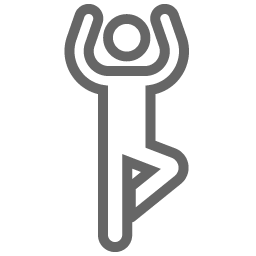Endocrine therapy and bone health – Advice to patients
Advise patients on the importance of weight-bearing exercise and on adequate calcium intake and vitamin D levels.
As a consequence, in all young patients special emphasis on dietary education [i.e. adequate intake of calcium through diet and supplements (1000 mg/day) and vitamin D (800e1000 UI/day)] and regular weight-bearing exercise is needed
Despite the lack of rigorous evidence specific to breast cancer survivors, general measures to prevent bone loss are recommended for all women starting endocrine therapy including ensuring calcium and vitamin D sufficiency (Formulated consensus recommendations)
Calcium and vitamin D supplementation is recommended unless otherwise contraindicated. Oral bisphosphonates and calcium should not be taken concurrently; several monographs suggest an interval of at least 2 hours to allow for maximum absorption
How this guidance was developed
No evidence-based source recommendation was identified for this topic, which was considered an important aspect of care. This practice point was developed using an expert consensus process.
This practice point informed by the narrative in ESO-ESMO 2017/2020 on the side effects of any endocrine treatment in young women (noting that, in contrast to its effects on bones in premenopausal women, tamoxifen can cause bone loss in premenopausal women); the narrative in the Position statement by the Endocrine Society of Australia, the Australian and New Zealand Bone & Mineral Society and the COSA 2018; and by a recommendation in the CCO/ASCO 2017 clinical practice guideline on the use of adjuvant bisphosphonates and other bone-modifying agents in breast cancer.
Endocrine therapy and bone health – Advice to patients
Advise patients on the importance of weight-bearing exercise and on adequate calcium intake and vitamin D levels.
No evidence-based source recommendation was identified for this topic, which was considered an important aspect of care. This practice point was developed using an expert consensus process.
This practice point informed by the narrative in ESO-ESMO 2017/2020 on the side effects of any endocrine treatment in young women (noting that, in contrast to its effects on bones in premenopausal women, tamoxifen can cause bone loss in premenopausal women); the narrative in the Position statement by the Endocrine Society of Australia, the Australian and New Zealand Bone & Mineral Society and the COSA 2018; and by a recommendation in the CCO/ASCO 2017 clinical practice guideline on the use of adjuvant bisphosphonates and other bone-modifying agents in breast cancer.


